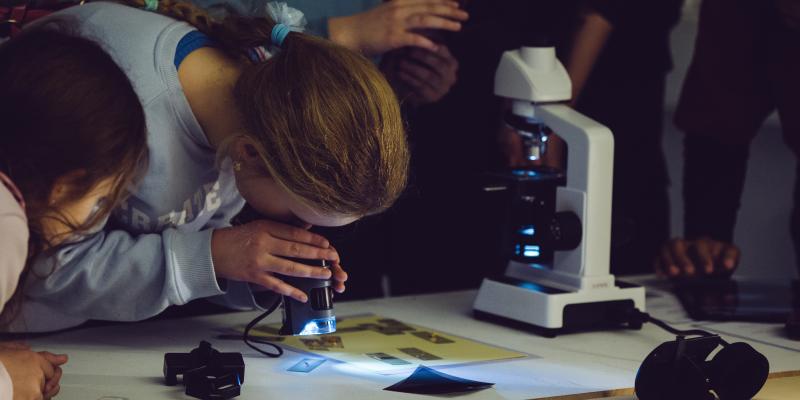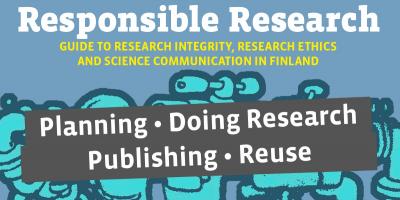The Science Forum is vital for bringing together scientists and the general public and as an opportunity to ask questions.
Finland’s Science Forum event celebrated its 40th anniversary in January 2017. One of the oldest science festivals in Europe, at its peak it has attracted more than 15,000 visitors.
Making scientists’ voices heard
One-off Science Forums were held in 1922 and 1926 under the name Tutkijainkokous (Researchers’ meeting) and the first event under the current Finnish name Tieteen päivät was held in 1954. The Science Forum became a regular event from January 1977 on the initiative of academician Kustaa Vilkuna and was originally held every five years and then every three. It has been run every second year since 1995. In 2017, the Science Forum was held for the 16th time. Books containing the presentations have been published after the events and from 2009 onwards this publication has been made available during the forum itself, in partnership with publisher Gaudeamus. The event is designed to appeal to a wide audience and always has a main theme.
A new phase began in the early 1990s, when the Federation of Finnish Learned Societies (TSV) became more involved in the preparations. Its head of communications at the time, Jan Rydman, compared the Science Forum with a symphony that had to include everyone. The event was extended to five days in 2003 (in 1977–95 it lasted three days, and in 1997–2001 it lasted four). The Tieteiden yö science night event was launched in 2003.
There is a permanent steering group behind the Science Forum, tasked with securing funding and the event’s future. The main responsibility for organisation rests with TSV. Planning is coordinated by a programme committee, also including representatives of four science academies, the Finnish Cultural Foundation (SKR) and Tieteen tiedotus ry, an organisation that publicises popular science magazine. Since 2011, the event has also had a planning group of science communication professionals, who design science events around the city, outside the lecture theatre. The forum has a permanent Secretary General and a producer. The event is a major joint effort on the part of the science community and the Tieteiden yö science night event always involves a large number of volunteers from scientific societies and various institutions.
The main funding bodies are SKR and Tieteen tiedotus ry. Additional support comes from the science academies and the University of Helsinki (venues) and the Kone Foundation (science events in the city). Cooperation bodies include Unigrafia, Metropolia University of Applied Sciences and the popular science magazine Tiede. The involvement of completely new foundations may also be necessary to safeguard the future of the event.
The Science Forum was extended to other cities from 2011, and it was held in three university towns in addition to Helsinki in 2011, five in 2013, six in 2015 and eight in 2017. Here the event is mainly run by the universities’ communications units. They were awarded start-up capital by SKR and Tieteen tiedotus ry.
New audiences and new questions
The field of science communication refers to the “dialogue turn” or the “democratic turn”. There is a move from science enlightenment and the popularisation of science to participatory communication. The Science Forum is vital for bringing together scientists and the general public and as an opportunity to ask questions.
The field of science communication refers to the “dialogue turn” or the “democratic turn”. There is a move from science enlightenment and the popularisation of science to participatory communication.
The Science Forum itself gives rise to encounters between different scientific fields and areas of life. This was the case, for example, in 2009 when the main theme was evolution. Surprising comparisons were drawn between the development and disappearance of different species of animal and of languages. The most recent Science Forum asked what unites and distinguishes the concept of freedom in science, art and religion.
Several outreach projects have been carried out at the Science Forum with the aim of bringing people together and increasing interaction between science and the audience. These are the aforementioned events: Tieteiden yö (science night), Nuorten päivä (youth forum) and Tiedettä kaupungissa (science in the city). Furthermore, the Science Forum has also included a climate tram, a science-themed play “Kroppa kriisissä” (Body in crisis), science quizzes and debates, including “wrestling match of the day”, and specialist themes.
Science Forum 2017
The main theme of the 2017 Science Forum was “The limits of freedom”. The Science Forum was also visible on the streets of Helsinki with science quotes on trams, a detective tour in Kruununhaka and a science time machine in the Kamppi shopping centre.
Almost 15,000 visitors attended the Science Forum on 11–15.1.2017. The event’s live stream on the internet was viewed more than 8,000 times and there were over 300 speakers during the event in total. The core of the Science Forum programme was lectures and panels held in the main building of the University of Helsinki. The Forum was also taken out into the city with various associated events. The two-day Tiedettä kaupungissa science event was held in the Kamppi shopping centre and the Nuorten päivä youth forum for secondary and upper secondary school students was run in the University of Helsinki Language Centre. More than 3,000 people enjoyed the Tieteiden yö science night programme in Kruununhaka.
Following the Helsinki event, a two-day Science Forum was held in Tampere and later in the year in Rovaniemi, Jyväskylä, Oulu, Turku, Joensuu, Kuopio and Savonlinna.
The next Science Forum will be held in 2019 on the theme of “Courage”.
Ilari Hetemäki, Secretary General of the Science Forum
Further information:
Science Forum: http://tieteenpaivat.fi/en
Tieteiden yö science night: https://www.tieteidenyo.fi/
You might also be interested in
Tämä teos on lisensoitu Creative Commons Nimeä 4.0 Kansainvälinen -lisenssillä. Detta verk är licensierat under en Creative Commons Erkännande 4.0 Licens. This work is licensed under a Creative Commons Attribution 4.0 International license.

